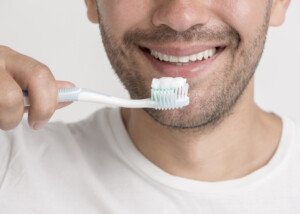
The link between anxiety and stress to gum (periodontal) disease is nothing to ignore.
Watch that anxiety: It can cause bad gums. Even the stress of loneliness can cause gum (periodontal) disease, says a study.
The study, though, doesn’t provide a conclusive, definitive relationship between stress, anxiety and gum disease.
However, study author Daiane Peruzzo, PhD, says: “More research is needed to determine the definitive relationship between stress and periodontal diseases. However, patients who minimize stress may be at less risk for periodontal diseases.”
How is it that stress and gum disease can be connected?
The suspect is cortisol, the “stress” hormone that promotes fat storage in the belly.
Another way to look at this, though, is a secondary effect of stress and anxiety on the gums.
People suffering from chronic anxiety are more apt to do things that are harmful to the gums, such as smoke, drink and neglect good oral hygiene.
“Patients should seek healthy ways to relieve stress through exercise, balanced eating, plenty of sleep, and maintaining a positive mental attitude,” says Preston D. Miller, Jr., DDS, and President of the American Academy of Periodontology.
In short, the link between periodontal problems and chronic stress may not necessarily be causative, but rather, associative.
Stressed out people often do not exercise regularly. Exercise has a suppressive effect on cortisol production.
When we are under emotional stress, cortisol levels increase.
This is part of the body’s “fight or flee” response to an environmental stressor.
This physiological reaction is designed to help us deal with perceived threats or stressors by preparing the body for immediate action.
Cortisol, a hormone produced by the adrenal glands, increases glucose availability for energy, enhancing the brain’s use of glucose, and curbing non-essential functions that might be detrimental during a crisis.
This response is beneficial in short-term stressful situations; however, prolonged or chronic stress can lead to consistently high levels of cortisol.
Over time, elevated cortisol can negatively affect various aspects of health, including immune function, metabolism and mood, potentially leading to conditions such as hypertension, weight gain and anxiety disorders.
Problem is, modern-day men and women don’t fight or flee when faced with anxiety, because the source of stress or anxiety is not something that a person can readily physically fight off, such as one’s boss at the workplace; being trapped in rush-hour traffic; waiting endlessly in a slow-moving line; etc.
Nor can someone flee from the workplace in a blaze of physical prowess, like ancient man did when faced with the stress of a wild predatory animal or impending thunderstorm.
So what we have here are chronically elevated levels of cortisol.
The physical exertion required in a “flight or flee” response is intense enough to subdue the cortisol.
But again, industrialized man does not fight or flee from stress; he remains immobile! (trapped in office cubicle, car, crowded elevator, board meeting, doctor’s waiting room, etc.)
Over time, the elevated cortisol can damage the gums.
So what can we do about this elevated cortisol?
Hit the gym! Intense exercise fights against elevated levels of cortisol, and like Dr. Miller says, exercise is one way to help stave off gum disease.
 Lorra Garrick has been covering medical, fitness and cybersecurity topics for many years, having written thousands of articles for print magazines and websites, including as a ghostwriter. She’s also a former ACE-certified personal trainer.
Lorra Garrick has been covering medical, fitness and cybersecurity topics for many years, having written thousands of articles for print magazines and websites, including as a ghostwriter. She’s also a former ACE-certified personal trainer.
.









































